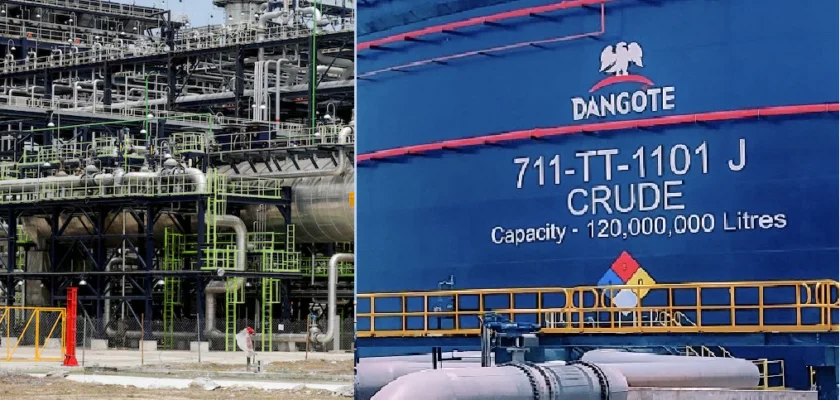Recently, President Bola Ahmed Tinubu gave a directive to the Nigerian National Petroleum Company Limited (NNPCL) to commence supplying crude oil to Dangote and other refineries in the country in naira. This measure aims to bring to an end the months of lingering deadlock between the Dangote Refinery and the NNPCL over the supply of crude oil to the 650,000 barrels a day refinery which had hampered the supply of petroleum products to the domestic market.
For months, Alhaji Aliko Dangote, the President and Chief Executive Officer of the refinery, had complained that since January this year, when the refinery came on stream, the International Oil Companies that are Joint Venture partners with the NNPCL have either decided to quote their prices above market prices or claimed it was unavailable. This led to the Dangote refinery relying on foreign sources for crude, which is invariably expensive.
Speaking on the directive, which was formalised at the Federal Executive Council (FEC), Zach Adedeji, the Chairman of the Federal Inland Revenue Service (FIRS), said it will “Ease the pressure on foreign exchange rates which exerted a burden of 660 million US dollars per month, amounting to 7.92 billion US dollars annually.’’ He said the new arrangement is projected to reduce the amount to around 50 million US dollars per month.
President Tinubu’s directive is commendable as it signals a win-win situation for Dangote Refinery and other local refineries, as well as the domestic retail market for petroleum products. This is aside from the huge savings Nigeria stands to gain from allocating foreign exchange to Dangote refinery and other refineries in sourcing crude from foreign sources.
- Common entrance exam: Stop extorting pupils, Kwara govt warns teachers
- Hunger protest: Family of 25-year-old killed in Kano cries out for justice
Beyond that, it is also a statement of patriotism and encouragement of local initiatives like Dangote’s in a sector that has had very marginal participation of local players despite Nigeria being one of the world’s major producers of the commodity. It is indeed ironic that over the years, despite efforts by governments through huge investments and regulatory policies, the operations of the oil and gas sector have remained largely unsatisfactory to Nigerians. For instance for quite a long time now, the four refineries with a combined capacity of 450,000 barrels per day have been comatose. The Port Harcourt refinery on which billions of dollars had been spent to refurbish and which promises have been repeatedly made on its coming on stream, has remained inoperative.
The administration of President Olusegun Obasanjo decided to approve licenses for private local players to establish refineries in order to fill the slack by the four refineries. Of those given the approval, Dangote was by far the most prominent player who had gone ahead to fulfil this need, which is surely a boost to our efforts at ensuring self-sufficiency in the domestic supply of petroleum products.
In this regard, Daily Trust believes that the difficulties the Dangote Refinery faced in sourcing local crude are rather unfortunate given that it has capacity to meet our local demand and earn foreign exchange for the nation.
However, we are concerned that this measure will not see the end of the problem for Dangote and other local refineries given that the 450, 000 barrels will run far short of their requirements.
There is also the perennial issue of stolen crude, which drastically affects Nigeria’s production quota. And, more importantly, it has been reported that much of the country’s crude oil future production may have been committed in return for loans by the NNPCL on behalf of the government.
Thus, we feel the federal government should think of more measures to ensure that the crude needs of our domestic refineries are taken care of now and in the future. This will not only provide a boost to the nation’s economy but will also encourage more investment in the downstream sector of our petroleum industry.
We believe that a stable downstream sector that ensures the supply of petroleum products across the country will guarantee economic and social stability for Nigeria.

 Join Daily Trust WhatsApp Community For Quick Access To News and Happenings Around You.
Join Daily Trust WhatsApp Community For Quick Access To News and Happenings Around You.


